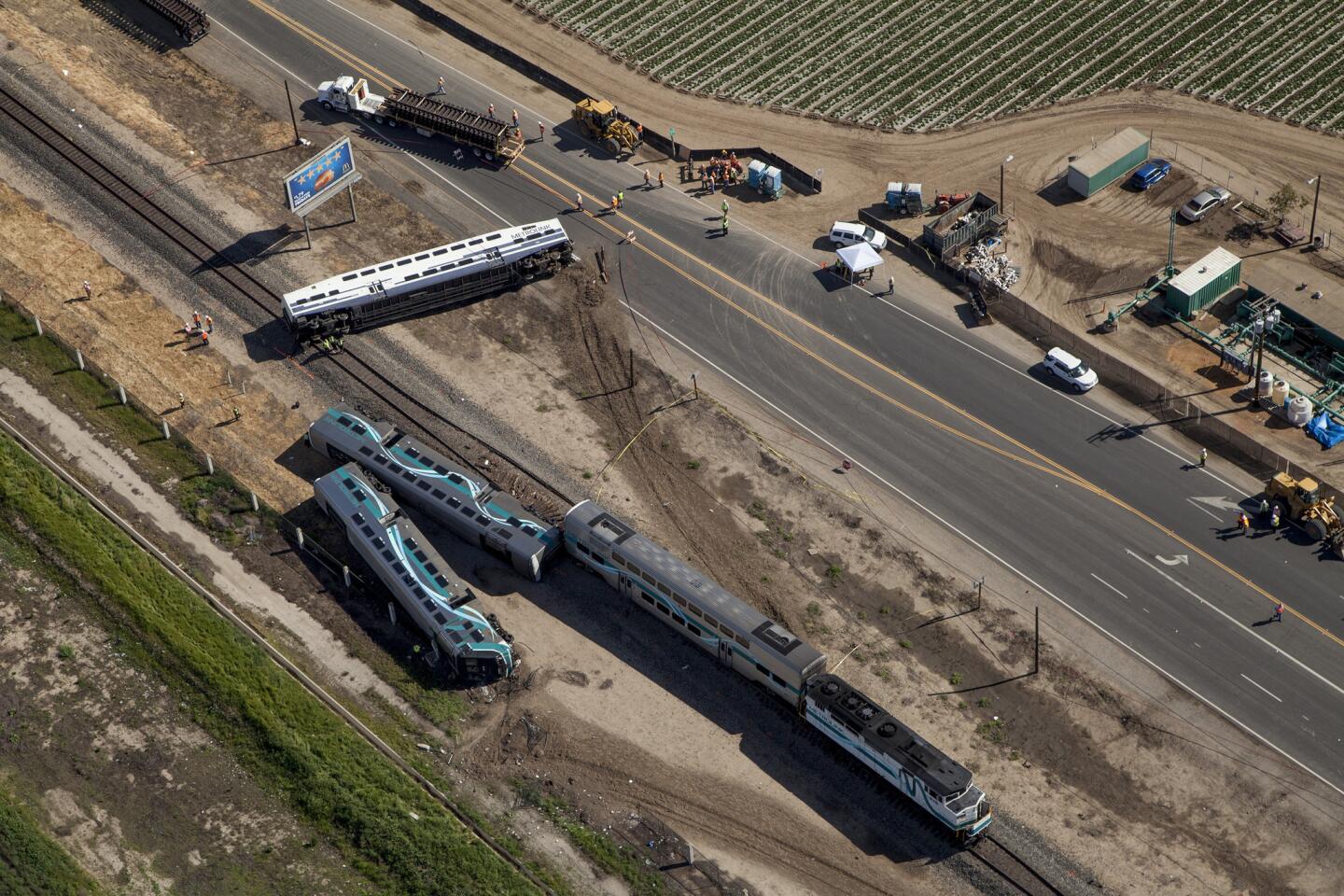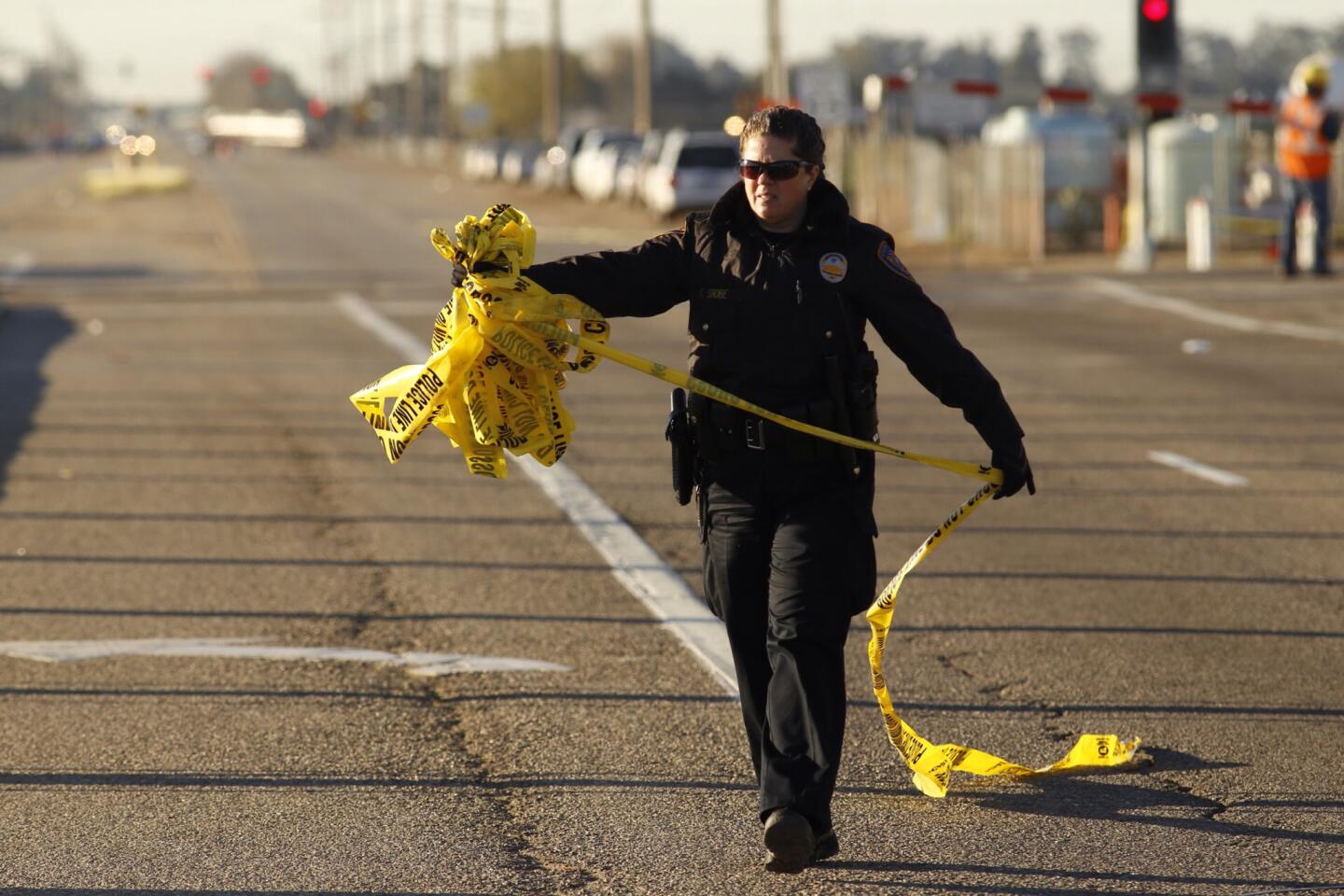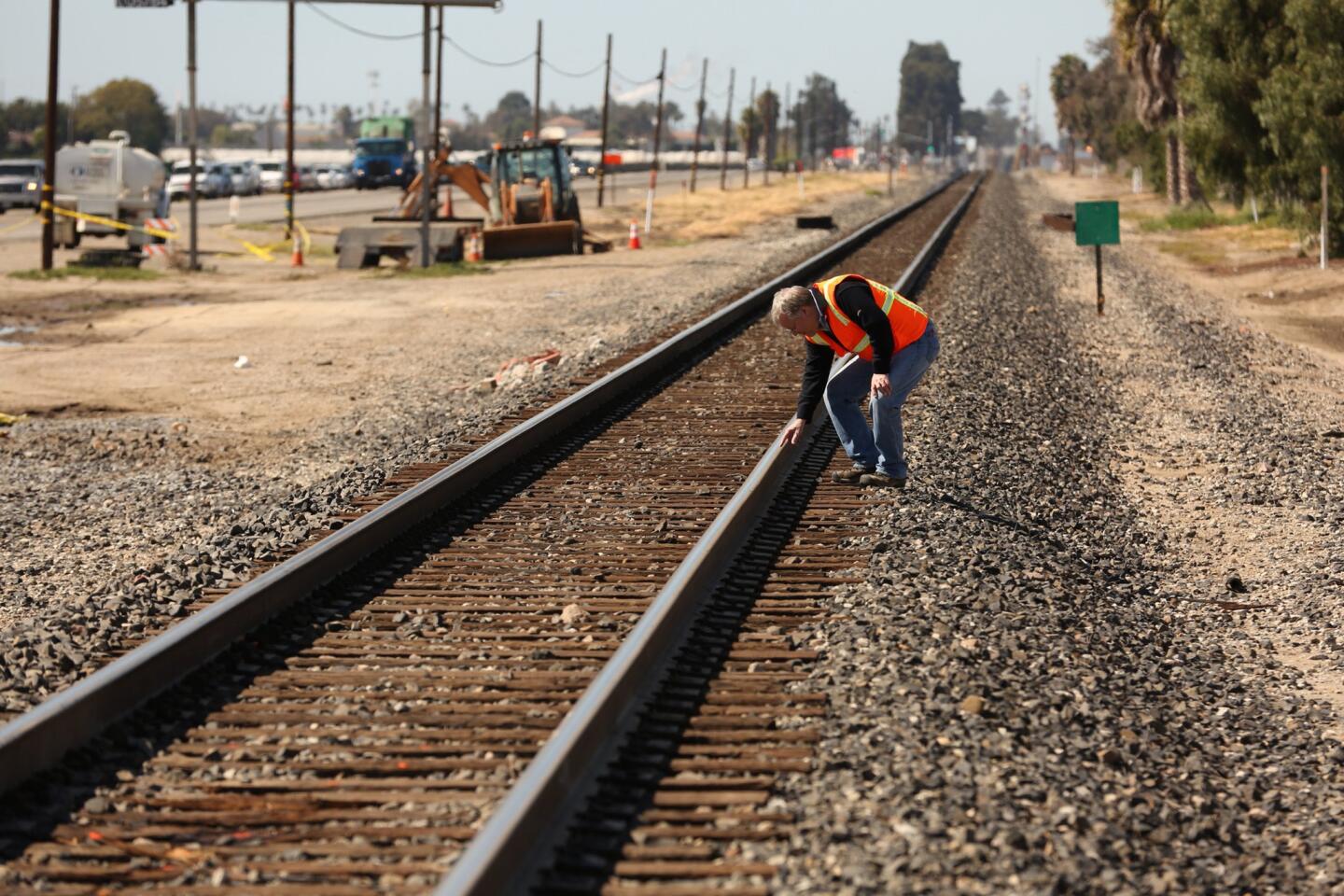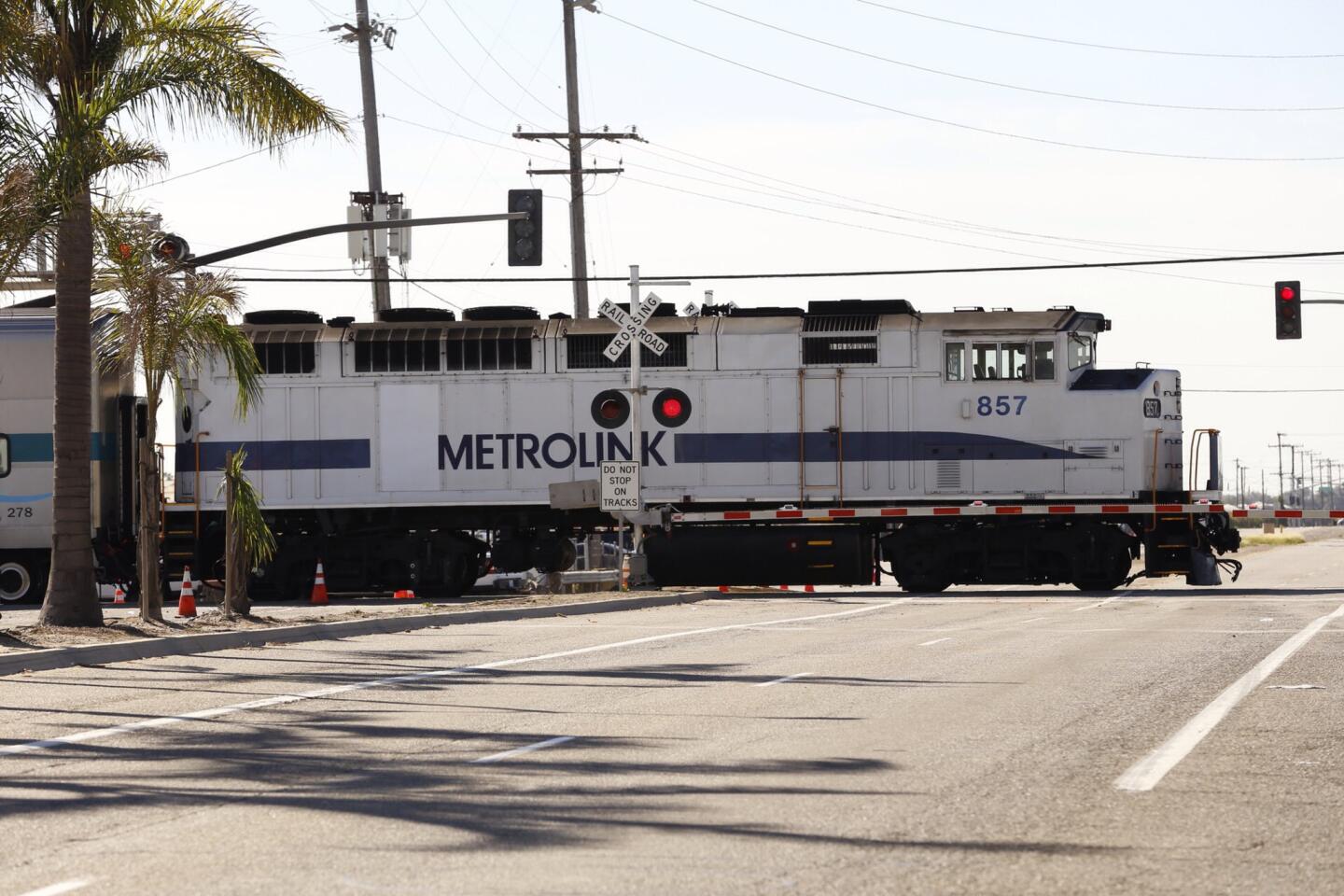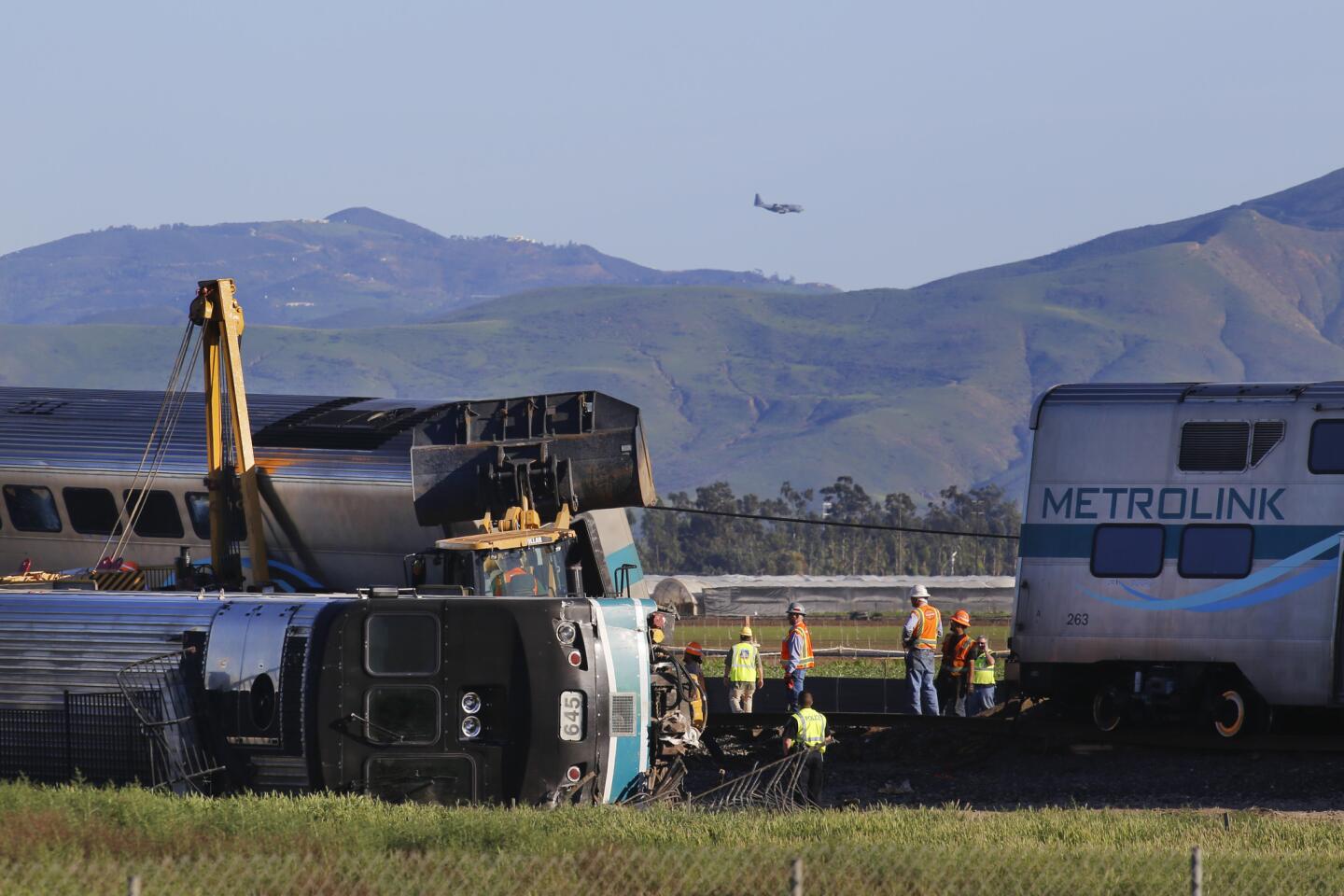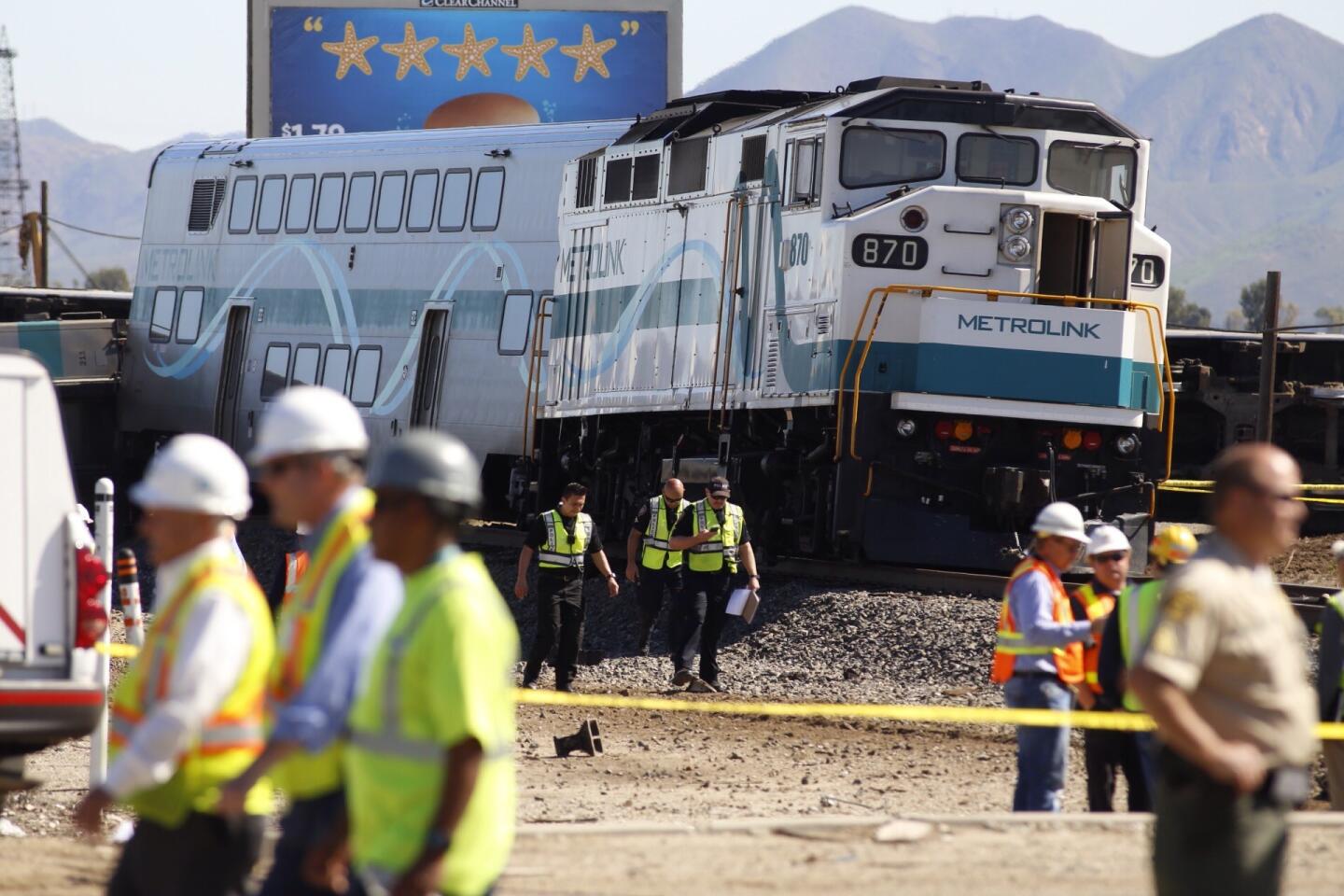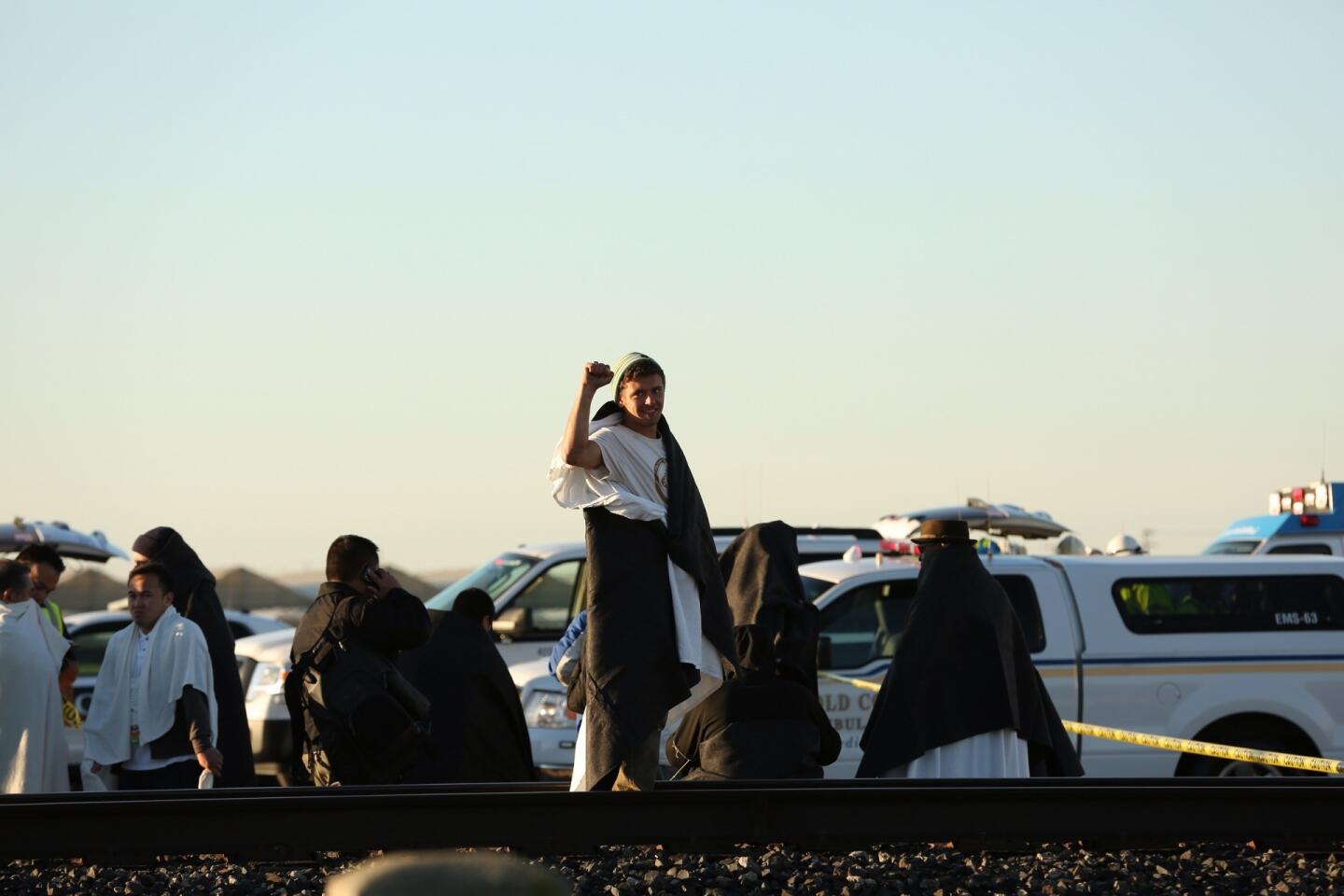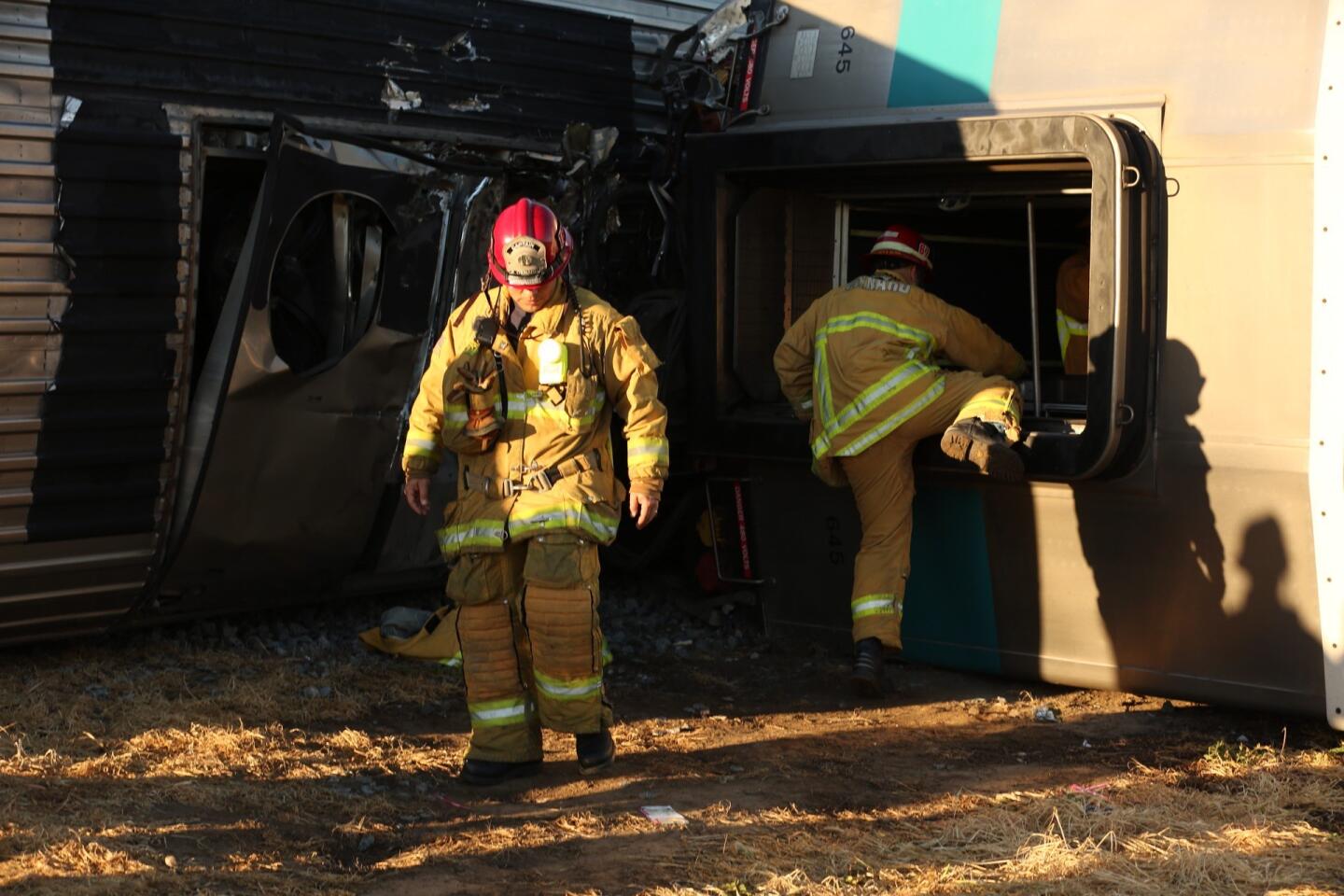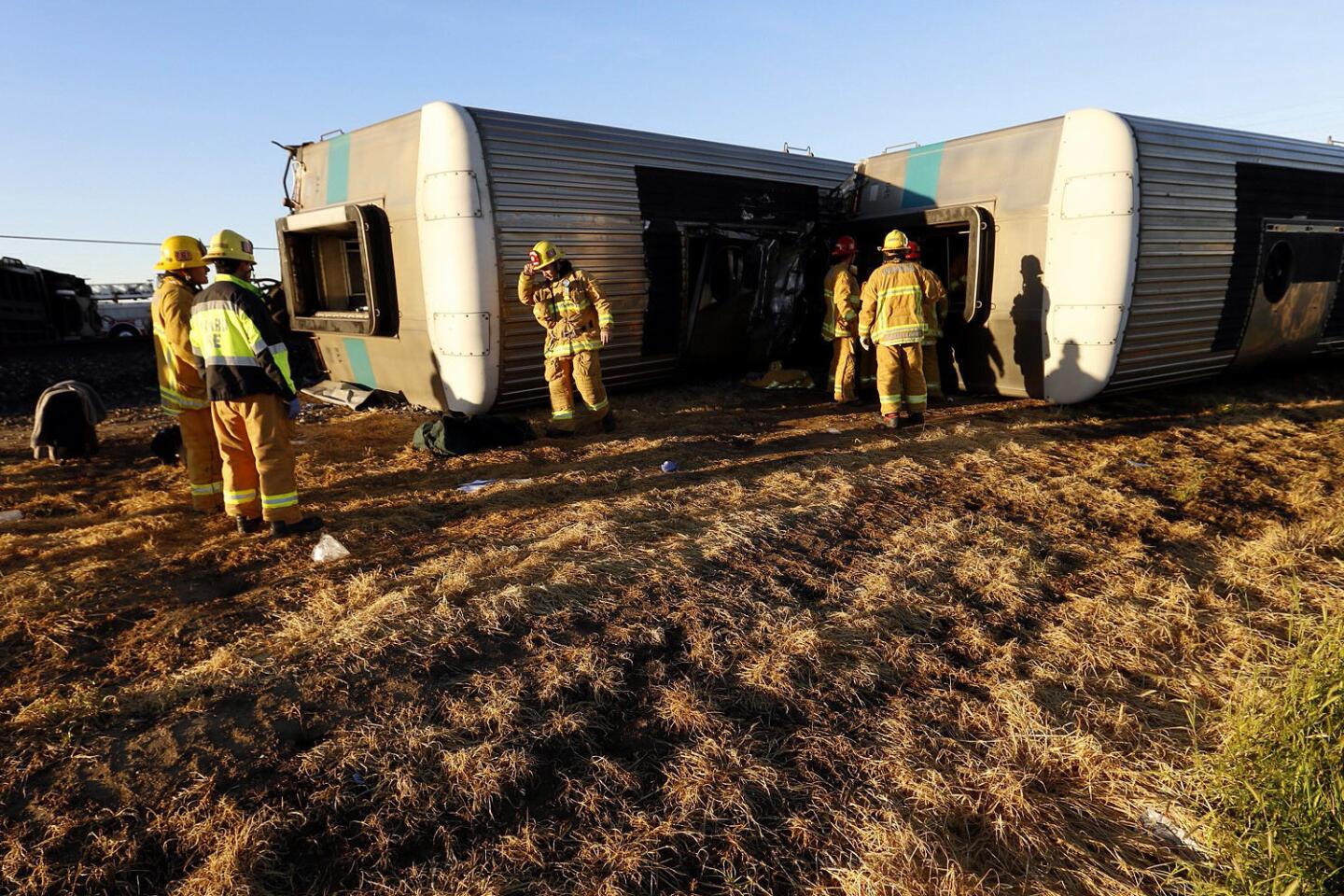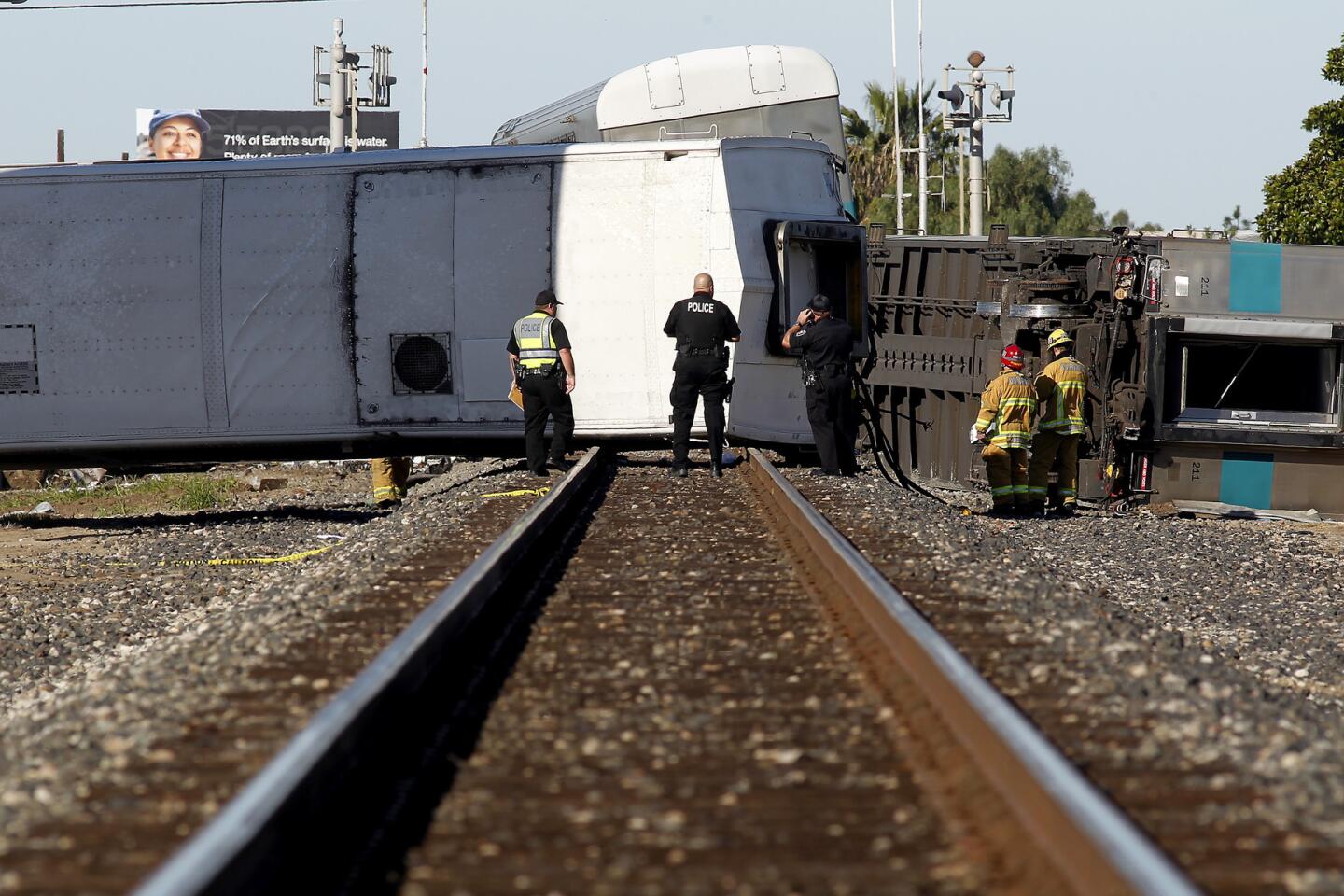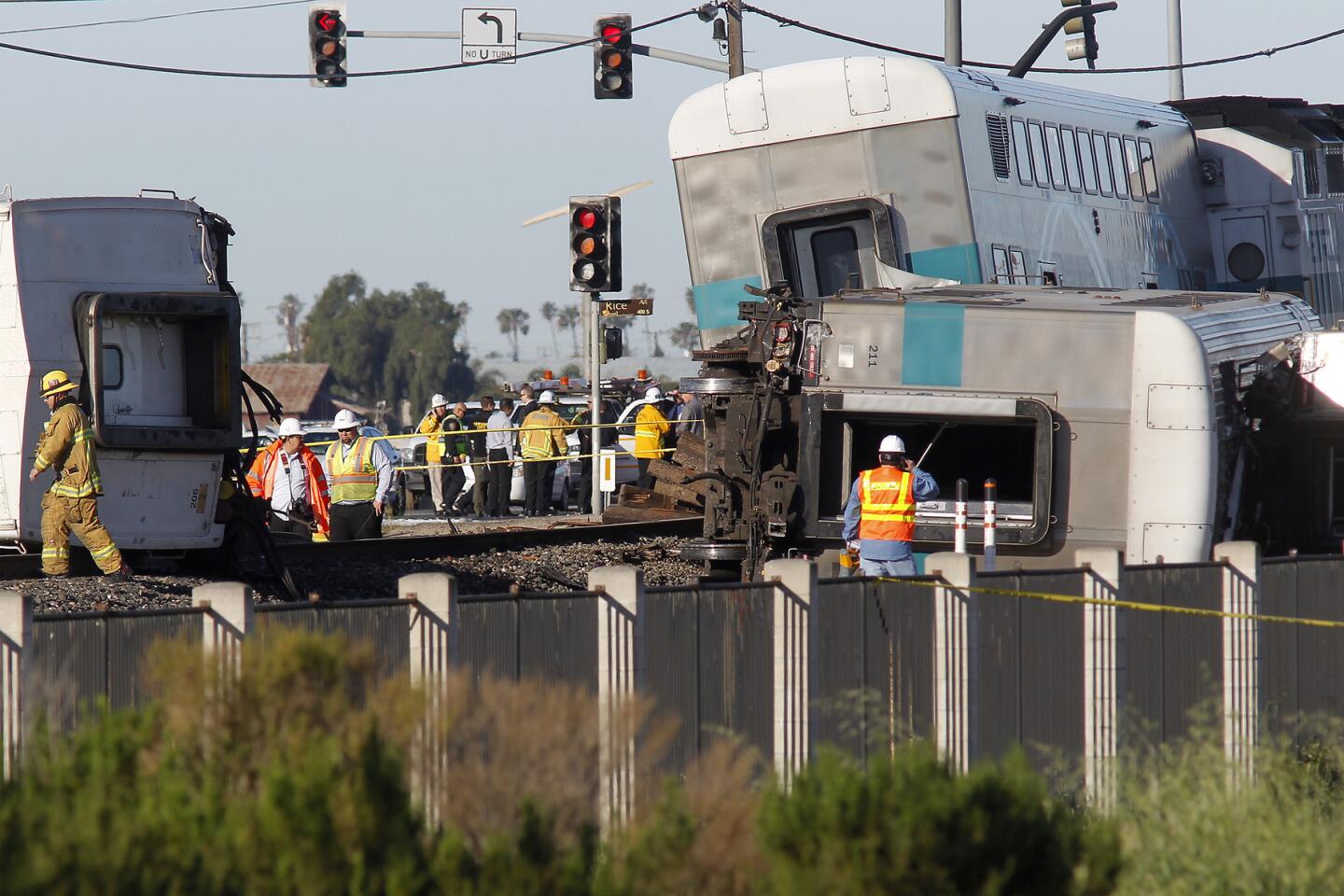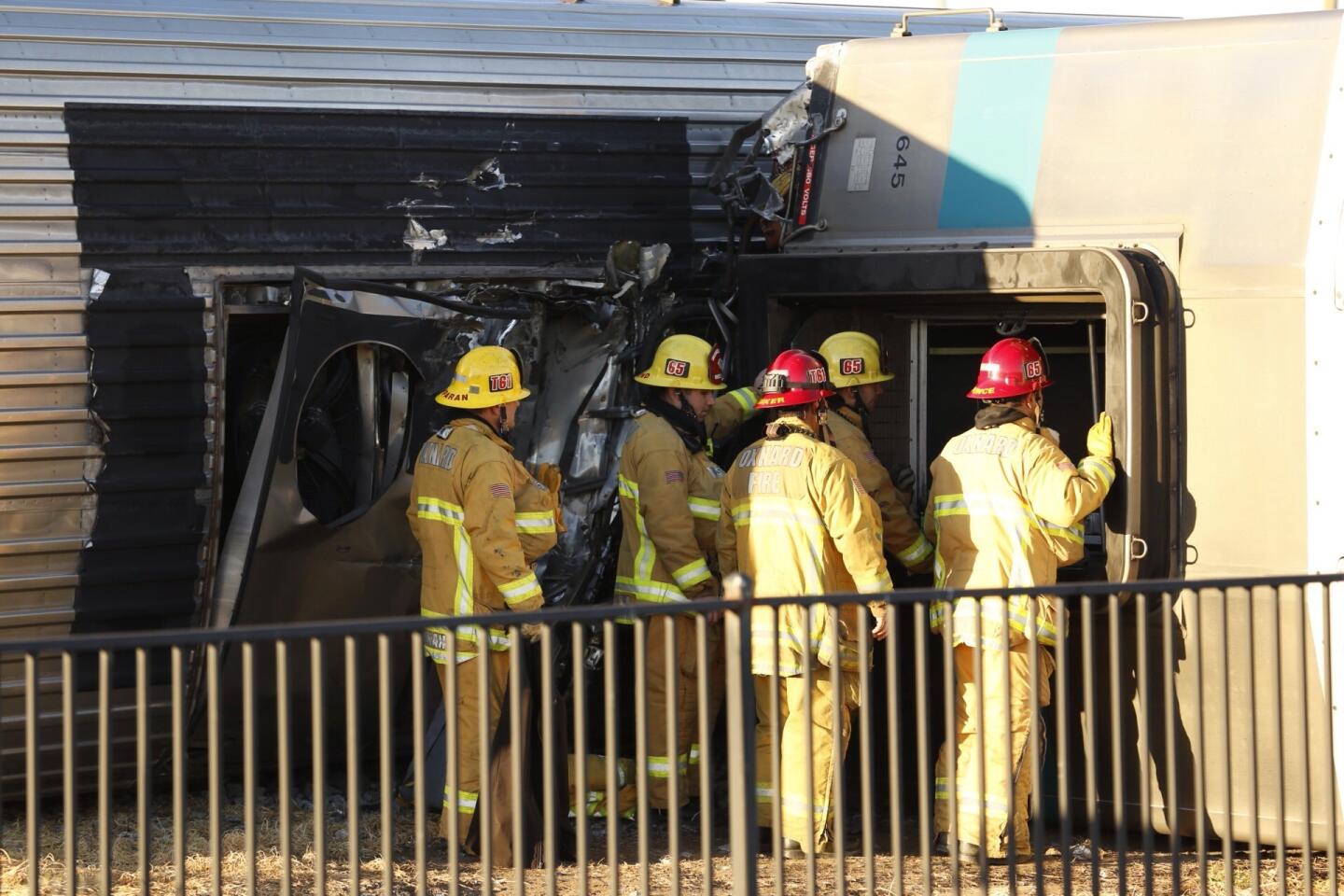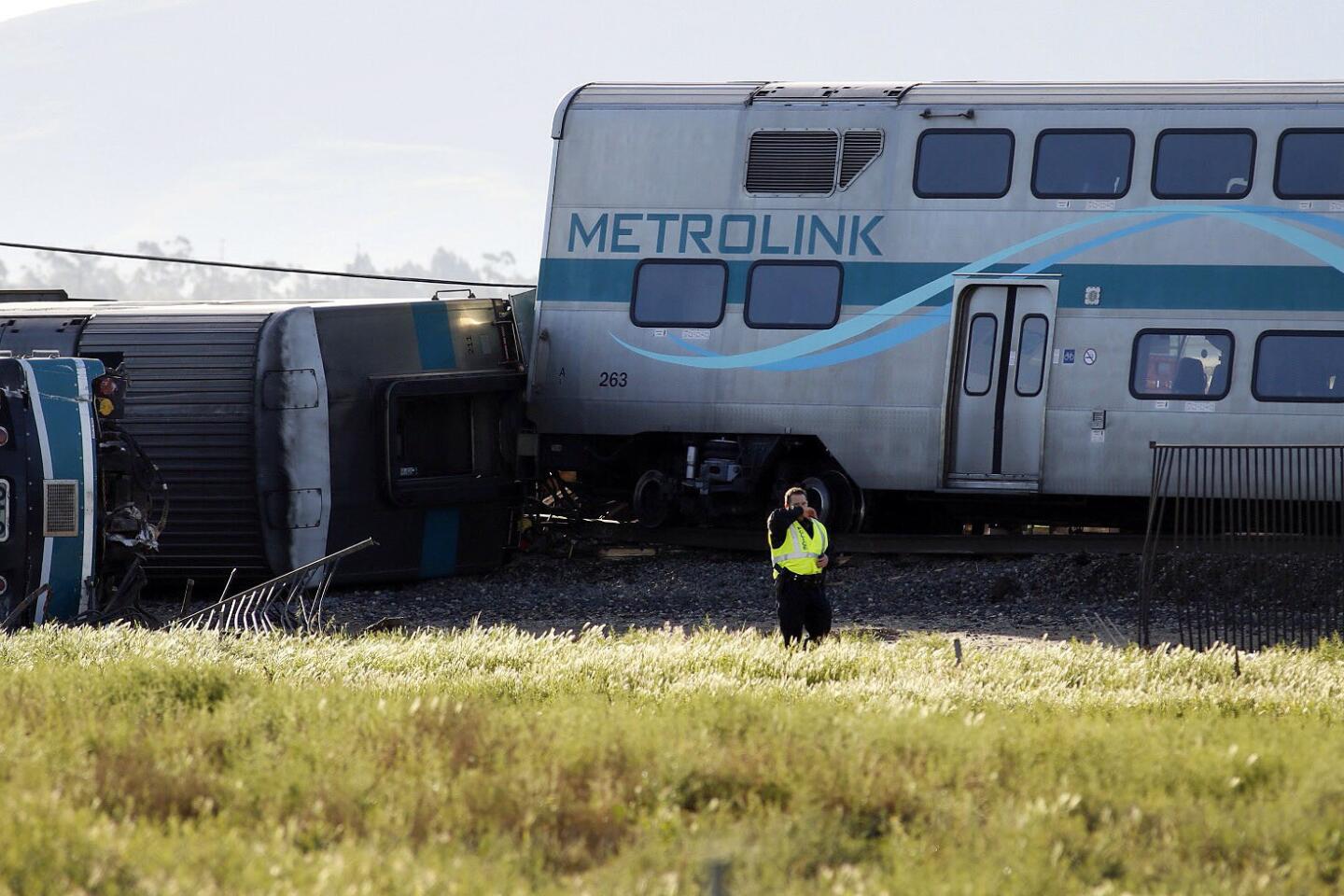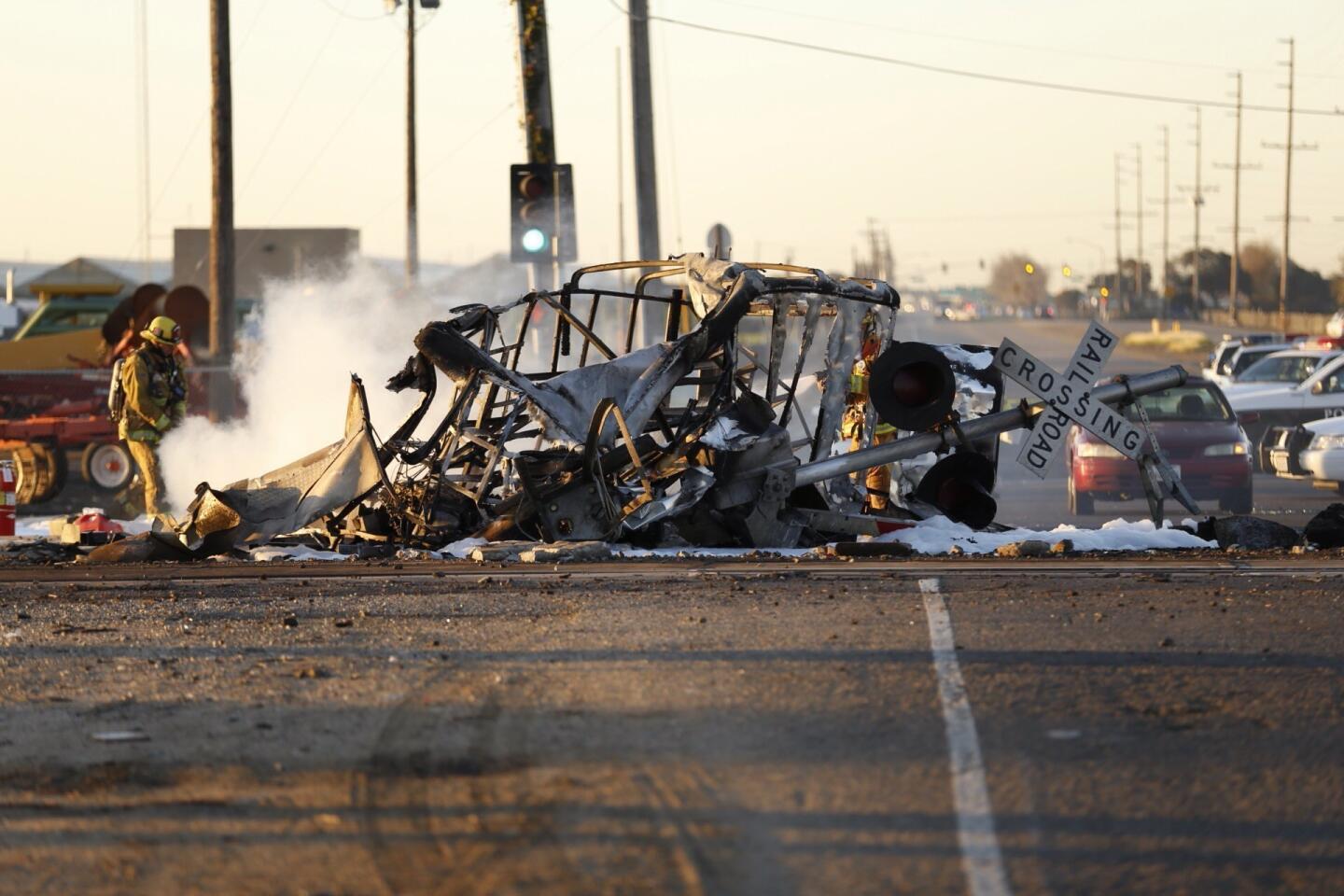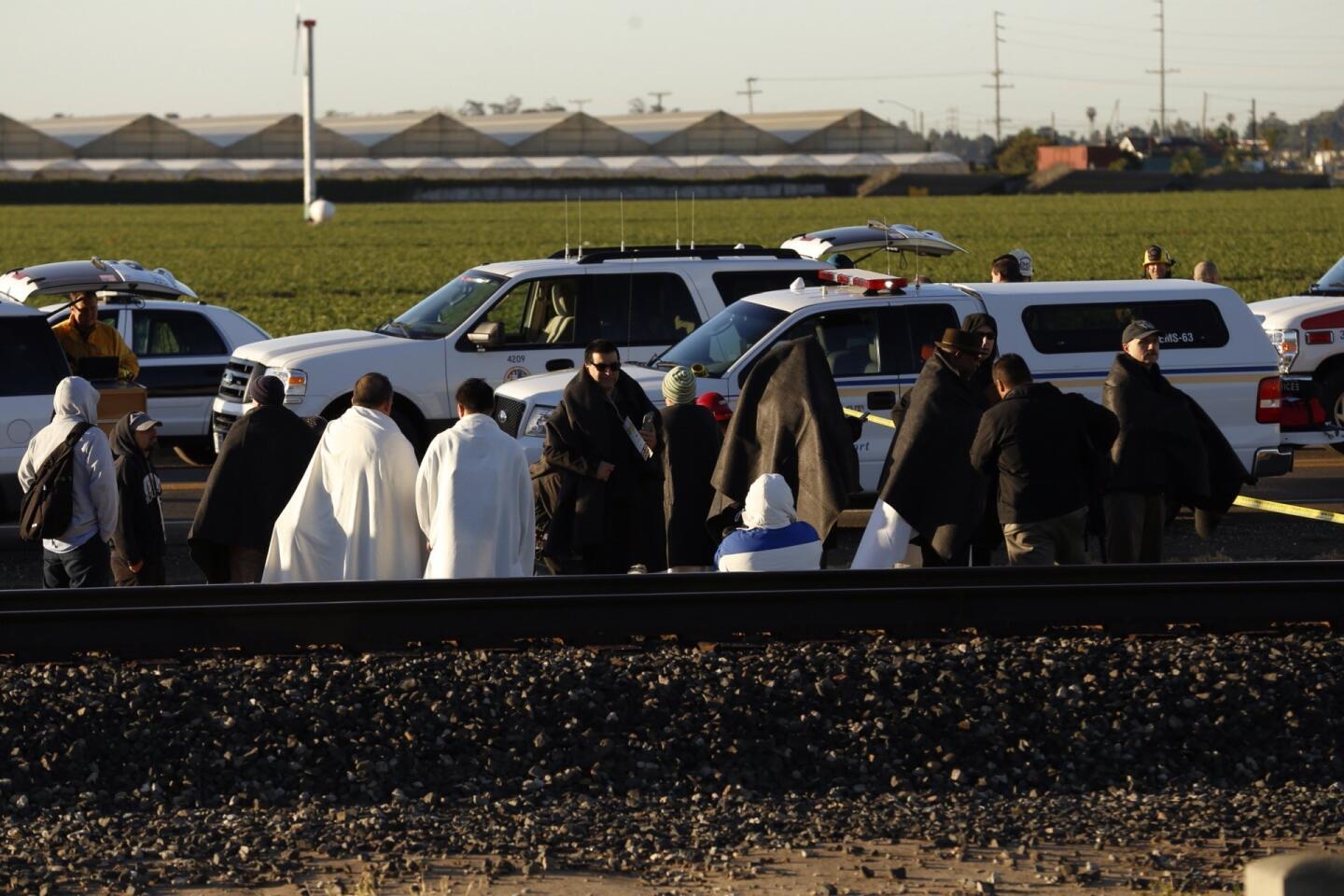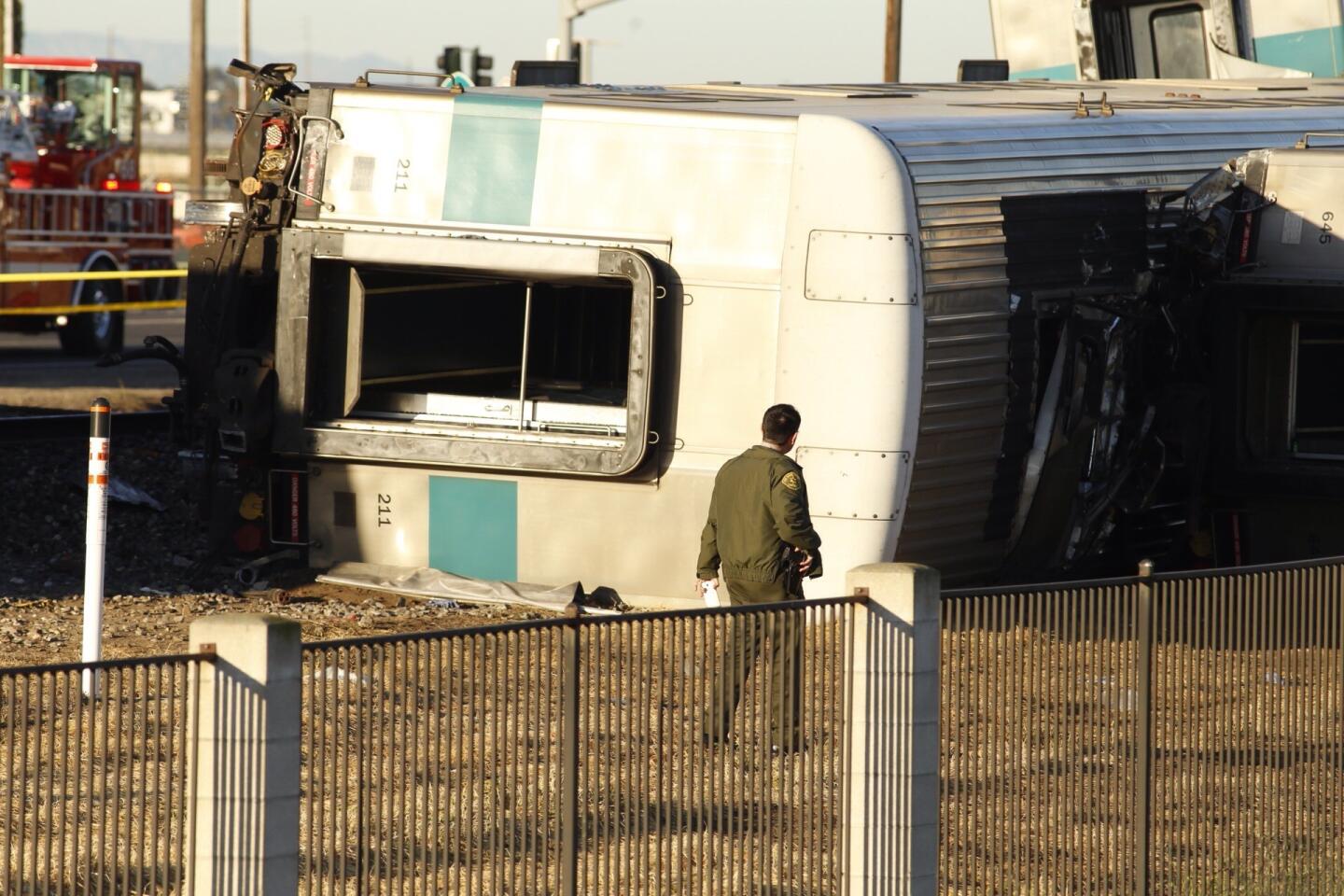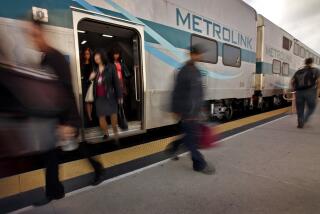Metrolink crash: New cars kept it from being ‘tremendously worse’
In Tuesday’s crash of a Metrolink commuter train in Oxnard, the railroad’s new passenger cars, which represent the state of the art in safety design, performed well, officials say.
The collision was, however, the fourth serious accident involving a train that was being pushed from behind by a locomotive -- a common practice that has been questioned in the past.
GRAPHIC: Closer look at crash-resistant cars
Keith Millhouse, mayor pro tem of Moorpark in Ventura County and a Metrolink board member, said three of the railroad’s new Rotem passenger cars passed their first test involving an actual crash.
“The injuries came from people being tossed around,” Millhouse said. “The Rotem cars received very minor damage. They performed the way they should in terms of collision absorption. This could have been tremendously worse without them.”
Officials said 28 people were injured and taken to hospitals when the commuter train hit a pickup truck. Four were said to be in critical condition. Twenty-three other passengers were uninjured.
Metrolink has replaced almost all its fleet of passenger cars with the Rotem coaches, which have crush zones, breakaway tables, improved emergency exits and seating arrangements that can reduce the risk of passengers being thrown into fixtures or one another in an accident.
LIVE UPDATES: Oxnard Metrolink crash
Tuesday’s crash, however, is the fourth accident involving Metrolink trains that were being pushed by locomotives from behind and controlled from the front by lighter cab cars, a passenger coach with an engineer’s station.
The practice, which is commonly used by commuter railroads, has been controversial. Some safety experts say that trains with their heavy locomotives at the front might have a lower risk of derailment in collisions with motor vehicles on the tracks.
Millhouse said the National Transportation Safety Board will be investigating all aspects of Tuesday’s crash, including how much the so-called push-pull operation contributed to the crash. He noted that the Rotem cab cars were significantly heavier than the older Bombardier cab cars involved in previous Metrolink crashes.
“We don’t know why this occurred,” Millhouse said. “If the locomotive had been in front, there could have been a fire from leaking fuel due to the impact. I don’t think push-pull had anything to do with it, but that is just speculation.”
The Federal Railroad Administration announced Tuesday that it was sending investigators to the scene.
“Safety must be every railroad’s absolute top priority, and we will establish what lapses, if any, occurred and order any necessary corrective actions,” said Mike England, an agency spokesman. “This morning’s accident on Metrolink’s Ventura County Line is a tragedy and our thoughts and prayers are with the victims and their families.”
Twitter: @LADeadline16
More to Read
Sign up for Essential California
The most important California stories and recommendations in your inbox every morning.
You may occasionally receive promotional content from the Los Angeles Times.
